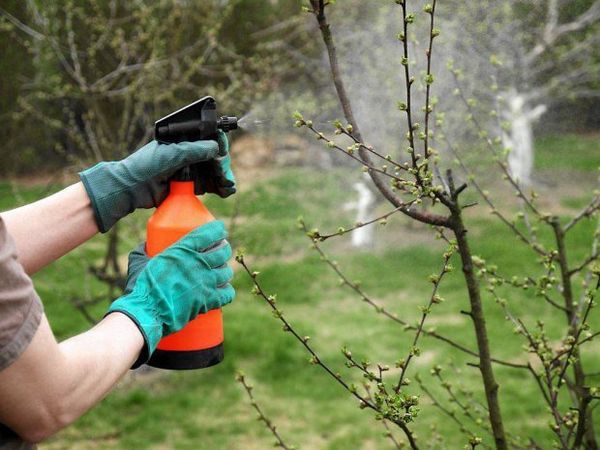It often happens that the crops stop growing, the leaves become brittle and wrinkled, the flowers do not form, and the fruits turn out to be small and deformed. This speaks of the boric starvation of plants, and to cope with this, the correct use of boric acid is necessary.
Table of contents
Useful properties of boric acid
After boron treatment, the roots of the plant are supplied with oxygen, calcium is supplied to all the fibers of the plant, the volume of chlorophyll rises, and exchange reactions are accelerated.
Spraying seeds before planting, stimulates their germination.
After fertilizing tomatoes and crops in the garden, yield increases by 1/3, tastes are improved, the shelf life of fruits is prolonged.
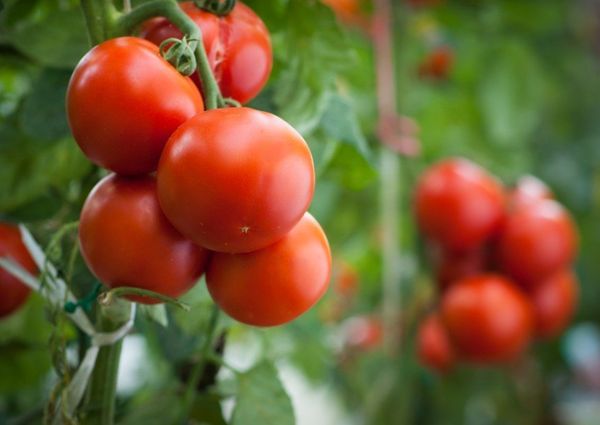
Mechanism of action
The microelement boron, entering the plant, accelerates biochemical processes, helps to saturate it with nutrients. Acid is most often used in the form of spraying, since boron ions in plants tend to migrate very slowly.
Fertilizer is applied to many crops:
- Potato tubers are processed before planting. It is necessary to secure the culture from scab disease.
- Tomatoes are recommended to spray in the period of the appearance of flowers and the formation of buds. Thanks to the processing the number of ovaries will increase, and the sugar content, taste properties will improve, and the size of the fruit will be larger.
- Beets can be fertilized to increase yields.
- Apple and pear sprayed to increase yield and reduce falling ovaries.
- For strawberries, this fertilizer is necessary for better fruit formation, a set of sugar content, as well as protection from gray rot.
- After spraying, grapes will have much more ovaries than without them.
- The rose will bloom longer, the buds will become larger, and fungal diseases will not appear.
- Gladioli also do not get the fungus, they will increase the number of bulbs.
- Dahlias, due to boron, will become larger. Therefore, it will be necessary to garter flowers.
The use of boric acid in the garden
Fertilizer use on all types of soil and for most garden and fruit crops. If they are fed in a timely manner, then rapid growth and strengthening are guaranteed.
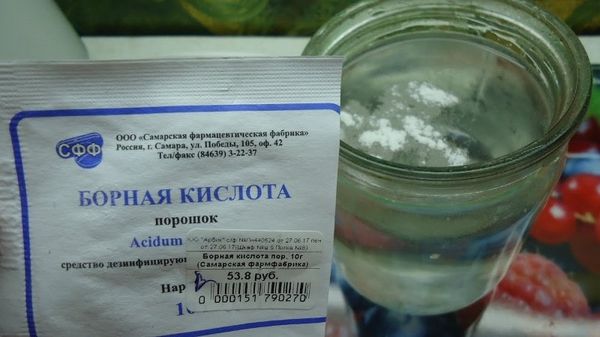
Application for fruit trees
In apples and pears should be high concentration boron.But you can not saturate them, otherwise the lower leaves can get burned.
For processing trees need to breed 15 grams of powder per 10 liters of water. Spray need all the crown at sunset twice: during the opening of the buds, then a week later.
Use on vegetables and tomatoes
For tomatoes, it is better to apply the solution during the appearance of ovaries and the formation of green fruits. 10 grams of acid diluted with 10 liters of water.
Cucumbers every 2 weeks is treated with a solution of 5 grams of boric acid and 2 grams of manganese sulphate per 10 liters of water.
Pepper is fertilized three times during the period of growth on a moist soil at the rate of 1 gram 10 liters of water.
Beets are fed into the appearance phase of 5-6 leaflets, then after 2 weeks. On 1 gram 10 liters of water are taken.
Application on beds with berries
Timely fertilization with boric acid improves the growth of berry crops, helps them to become strong, increases fruiting, preserves the crop and gives resistance to negative conditions, as well as to pests and infections.
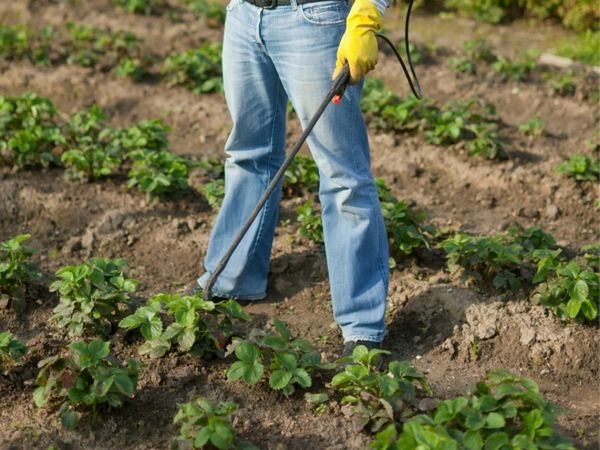
Before planting strawberries, the material must be held for 2 days in a solution, for the preparation of which 0.2 grams powder consumed on 1 liter hot water.
Strawberries are fed 3 times:
- In early spring 1 gram of potassium permanganate and 1 gram of boric acid must be diluted in 10 liters of water. Then you need to shed the roots of plants, it will be enough for about 35 bushes.
- Before the formation of flowers it is necessary to spray the berry culture. To prepare the fertilizer is taken 5 grams of boron powder per 10 liters of water.
- In the flowering period, strawberries can be sprayed or shed its root system with a nutrient solution. To do this, 1 cup of wood ash to fill 2 liters. boiling water, stir and let it brew for 2 hours. Then add 3 grams of potassium permanganate, 3 grams of boric acid, 1 tablespoon of iodine and 8 liters of water.
To enrich the raspberries and strawberries in early spring with nutrients, you can take a bucket of water with a pink solution of potassium permanganate, add boric acid on the tip of the knife, mix everything thoroughly.
Security measures when working with the tool
It is believed that this fertilizer in a small amount will not harm a person. But while working with him, you need to use special clothes, gloves and a respirator. After completion, you should thoroughly wash your face and hands with soap and water.
Fertilizer can easily ignitetherefore it is unacceptable to leave it in the fire zone. It is recommended to close the package well and use a dark and cool place for storage.
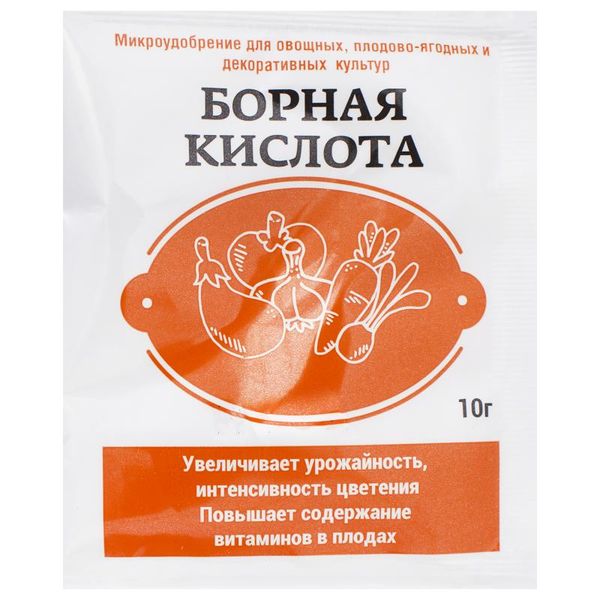
Compatibility with other drugs
Boric acid is compatible with many fertilizers. The main condition, when preparing a solution with other substances, the concentration of the powder should be halve.
First aid for poisoning
Boric acid, getting into a person can cause nausea, vomiting, diarrhea, rash, redness. In case of accidental ingestion of fertilizer in the stomach, you need drink a few glasses of water and induce vomiting.
If she gets on the open area of the skin, it is necessary wash with soap.
An experienced gardener who in a timely manner finds signs of starvation of boron in garden crops will surely feed them with boron. Boric acid is beneficial for all plants. Indeed, thanks to its action, the harvest is rich, the taste of the fruit is improved, and the shelf life is lengthened.
